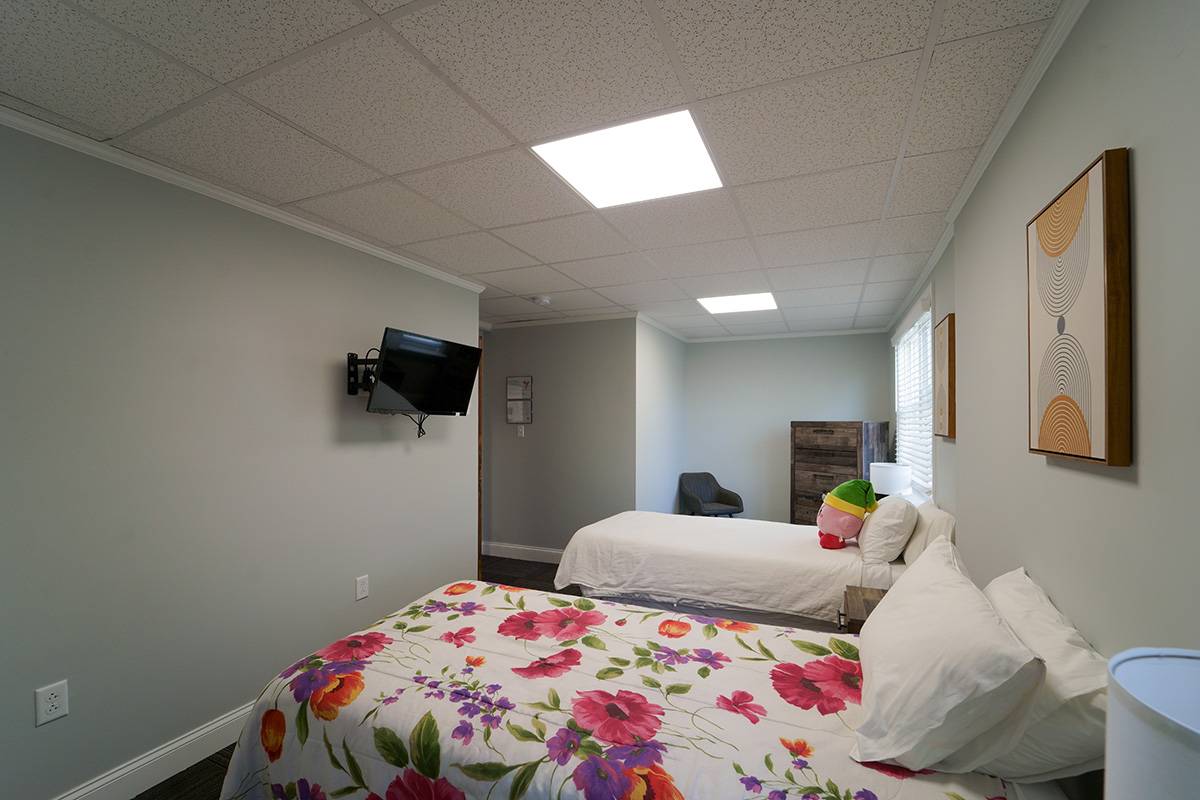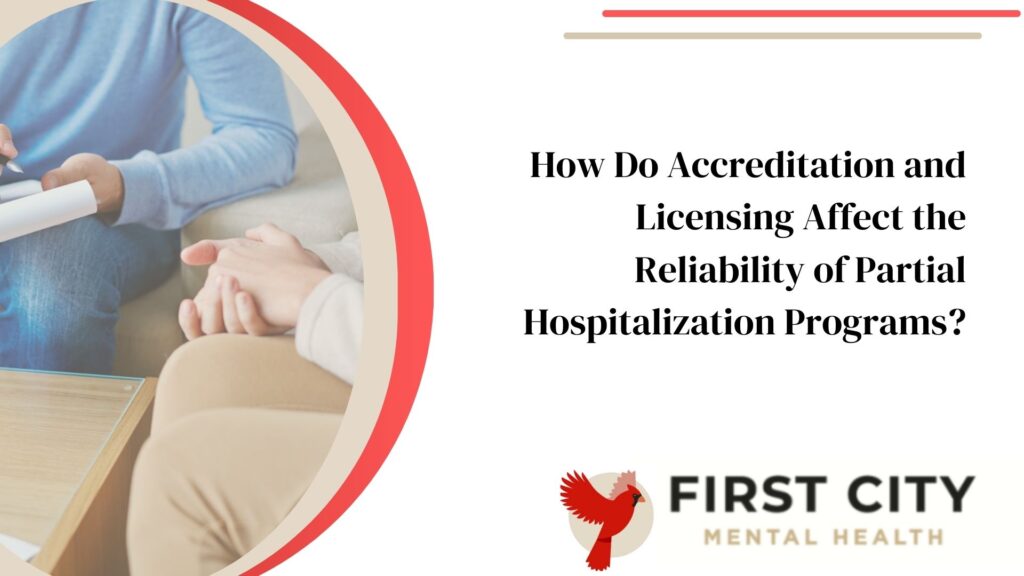
How to Enroll in a Mental Health Partial Hospitalization Program in Kokomo?
January 27, 2025
Why a Partial Hospitalization Program Might Be Right for You?
January 27, 2025Struggling with mental health issues can be overwhelming, especially when outpatient treatment isn’t enough, but inpatient care feels too intense. Many people find themselves in this predicament, searching for a balanced solution that offers robust support without needing full-time hospitalization.
Partial Hospitalization Program (PHP) provides essential mental health care while allowing patients to live at home. These programs often last 30-45 days, offering structured therapies daily and gradually enabling individuals to reintegrate into daily life.
This article will explore how reliable these programs are by examining who evaluates them, what metrics determine their reliability, and how they ensure consistent quality of care.
Learn why choosing a reliable PHP is crucial for patient outcomes and where you can find top-notch options.
Key Takeaways
- Mental health experts and accrediting organizations like The Joint Commission evaluate the reliability of Partial Hospitalization Programs (PHP). They assess treatment effectiveness, staff qualifications, and patient outcomes.
- Key metrics for PHP reliability include patient improvements in mental health conditions, symptom reduction, and successful reintegration into daily life. High success rates indicate effective treatment.
- Consistent quality in PHPs is maintained through structured daily schedules with therapy sessions, medication management, individualized treatment plans, and regular progress evaluations by multidisciplinary teams.
Who Evaluates the Reliability of Partial Hospitalization Programs?
Mental health professionals and accreditation organizations evaluate the reliability of partial hospitalization Kokomo programs. These experts check if the treatment methods work well, how qualified the staff is, and whether patient outcomes meet industry standards.
Accreditation groups like the Joint Commission or C.A.R.F. play a significant role. They review everything from safety to quality of care, and patient feedback also helps gauge the reliability of these programs.
The evaluation process ensures high-quality mental health care in PHPs.
What Metrics Determine the Reliability of Partial Hospitalization Programs?

Programs use several metrics to determine reliability. Patient outcomes are a key factor. They track improvements in mental health conditions, reduction in symptoms, and successful reintegration into daily life.
This can be measured through follow-up surveys or clinical assessments after the program ends. High success rates indicate effective treatment.
Program structure is another metric. Reliable Mental Health Partial Hospitalization Program (PHP) offers consistent services like group therapy and medication management for 6-8 hours daily over 30-45 days.
Accreditation and licensing from recognized bodies also matter. These ensure the program meets high standards of care and safety set by experts in mental health partial hospitalization programs (MH PHP).
Using these metrics helps identify dependable programs across areas, including Indiana partial hospitalization services.
How Do Partial Hospitalization Programs Ensure Consistent Quality of Care?
Partial hospitalization program Mental Health (PHP) provide essential mental health care. They maintain consistent quality through several means:
- Therapeutic Programming: PHPs offer structured daily schedules, typically 6-8 hours long, including individual and group therapy sessions.
- Medication Management: Programs ensure patients receive regular medication assessments and adjustments by qualified professionals.
- Life Skills Reintegration: Patients learn essential skills for independent living through life skills training classes.
- Experienced Treatment Teams: Multidisciplinary teams that include psychiatrists, social workers, and therapists provide comprehensive care.
- Individualized Treatment Plans: Each patient receives a tailored treatment plan addressing their needs and goals.
- Regular Evaluation Meetings: Treatment teams conduct consistent progress reviews to adjust care plans as needed.
- Accreditation and Licensing: PHPs adhere to rigorous standards set by accrediting bodies to maintain high-quality care.
- Patient Engagement and Feedback: Active participation in the treatment process ensures personalized care adjustments based on ongoing feedback.
- Family Involvement: Including family members in therapy sessions helps improve support systems outside the program.
Why Is the Reliability of Partial Hospitalization Programs Crucial for Patient Outcomes?

Transitioning from quality care, the reliability of the Partial Hospitalization Program (PHP) directly affects patient outcomes. High reliability ensures that patients receive consistent and intensive mental health treatment.
PHP serves as a critical step down from Residential Programs to outpatient care. Daily therapeutic programming, medication management, and life skills reintegration help stabilize individuals’ mental health.
Patients in reliable PHPs can return home each night without compromising their recovery process. These programs offer structured environments similar to inpatient settings but with more flexibility.
This balance allows individuals to adjust to independent living while receiving support gradually.
The goal of PHP is to help individuals stabilize their mental health and eventually return to independent living.
Reliable programs maintain strict schedules for therapy sessions and daily activities, reinforcing positive habits. Quality supervision ensures that treatment goals are met, reducing relapses or setbacks in recovery.
Providing high levels of care also increases patient trust in the program’s effectiveness. Consistency in services means smoother transitions between different levels of care for patients.
When Do Patients Typically Experience the Benefits of Reliable Partial Hospitalization Programs?
Patients in reliable Indiana partial hospitalization programs for mental health often experience benefits within the first few weeks. These programs usually last 30-45 days, during which patients start to stabilize their mental health.
They begin working toward independent living and functioning early on.
Supportive care teams provide treatment tailored to each patient’s needs. Group psychotherapy sessions help develop coping skills essential for daily life. The structured environment without a need to stay overnight contributes significantly to improving anxiety levels among adults.
Where Can Patients Find Highly Reliable Partial Hospitalization Programs?
Highly reliable mental health partial hospitalization program (PHP) are often found at accredited hospitals and specialized treatment centers. In Indiana, patients can explore programs like those in Kokomo, where many facilities offer adult partial hospitalization programs designed to help people reintegrate into society after residential care.
Insurance providers or Medicare may cover these programs. Costs vary, but many clinics provide options to fit different budgets. Checking a facility’s credentials ensures high-quality standards and effective treatment models are met consistently throughout the treatment day, excluding holidays.
What Factors Influence the Reliability of Partial Hospitalization Programs?
Patients can find reliable partial hospitalization programs in many areas. Factors influencing reliability include the availability of trained staff, regular program updates, and adherence to treatment plans.
Staff credentials matter a lot. Programs with skilled therapists and doctors give better care for adult partial hospitalization program.
Consistency in therapy methods is also crucial. Reliable programs follow proven guidelines for mental health treatments and regularly offer group therapy, individual sessions, and medication management.
Monitoring patient progress helps ensure that adjustments are made when needed.
Quality facilities also play a role. Clean environments with necessary resources improve patients’ overall experience, and patients get better quicker in settings designed for recovery.
Insurance coverage affects reliability as well. Programs accepted by more insurers can serve diverse patients without financial stressors of mental health condition.
Community support systems influence outcomes, too. Integration with local services aids long-term recovery by providing continuous assistance even after discharge from the PHP program.
How Do Accreditation and Licensing Affect the Reliability of Partial Hospitalization Programs?

Accreditation and licensing ensure that partial hospitalization program in Indiana (PHP) meet high standards. They follow strict guidelines to provide quality care for mental health issues, and agencies like the Joint Commission check these programs.
Inspectors look at staff qualifications, treatment plans, and patient safety measures. These checks guarantee that each program meets specific requirements.
Licensed PHPs must also show ongoing improvements in their services. This can mean better patient outcomes and higher success rates in treating psychiatric disorders. For example, First City Mental Health offers top-level care with a mission focused on success.
Licenses prove a program’s commitment to consistently following regulations and delivering effective treatments and program costs.
Conclusion
Partial hospitalization program for mental health care are reliable. Experts evaluate these programs regularly. Metrics like patient outcomes and treatment consistency matter a lot.
Programs ensure quality with group therapy, individual sessions, and medication management. Reliable programs help patients stabilize their mental health, and patients usually see benefits within weeks.
Accredited and licensed centers offer high standards of care.
FAQs
What is a partial hospitalization program (PHP) for mental health?
A partial hospitalization program (PHP) for mental health offers intensive treatment without requiring an overnight stay, unlike an inpatient program.
How reliable are partial hospitalization programs in Indiana?
Partial hospitalization programs in Indiana provide structured support and have proven effective for many patients with specific treatment needs.
Are there alternative options to PHPs in Kokomo?
Alternatives include inpatient programs and other outpatient services based on individual treatment needs and costs.
How do I contact someone about a PHP or refer patients to one?
You can contact local mental health facilities directly to inquire about their partial hospitalization programs or refer patients as needed.






